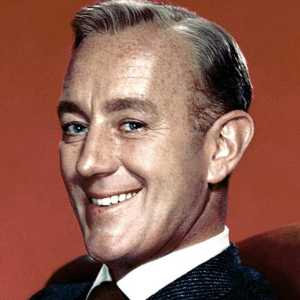Sir Alec Guinness CH CBE (born Alec Guinness de Cuffe; 2 April 1914 – 5 August 2000) was an English actor. After an early career on the stage, Guinness was featured in several of the Ealing comedies, including Kind Hearts and Coronets (1949), in which he played nine different characters, The Lavender Hill Mob (1951), for which he received his first Academy Award nomination, and The Ladykillers (1955). He collaborated six times with director David Lean: Herbert Pocket in Great Expectations (1946), Fagin in Oliver Twist (1948), Col. Nicholson in The Bridge on the River Kwai (1957), for which he won both the Academy Award for Best Actor and the BAFTA Award for Best Actor, Prince Faisal in Lawrence of Arabia (1962), General Yevgraf Zhivago in Doctor Zhivago (1965), and Professor Godbole in A Passage to India (1984). In 1970, he played Jacob Marley's ghost in Ronald Neame's Scrooge. He also portrayed Obi-Wan Kenobi in George Lucas's original Star Wars trilogy; for the original 1977 film, he was nominated for Best Supporting Actor at the 50th Academy Awards.
Guinness began his stage career in 1934. Two years later, at the age of 22, he played the role of Osric in Hamlet in the West End and joined the Old Vic. He continued to play Shakespearean roles throughout his career. He was one of the greatest British actors who, along with Laurence Olivier and John Gielgud, made the transition from theatre to films after the Second World War. Guinness served in the Royal Naval Reserve during the war and commanded a landing craft during the invasion of Sicily and Elba. During the war he was granted leave to appear in the stage play Flare Path about RAF Bomber Command.
Guinness won an Academy Award, a BAFTA, a Golden Globe and a Tony Award. In 1959 he was knighted by Queen Elizabeth II for services to the arts. He received a star on the Hollywood Walk of Fame in 1960, the Academy Honorary Award for lifetime achievement in 1980 and the BAFTA Academy Fellowship Award in 1989. Guinness appeared in nine films that featured in the BFI's 100 greatest British films of the 20th century, which included five of Lean's films.
Early life :
Guinness was born here, which is commemorated with a blue plaque.
Guinness was born Alec Guinness de Cuffe at 155 Lauderdale Mansions South, Lauderdale Road, in Maida Vale, London. His mother's maiden name was Agnes Cuff, born on 8 December 1890 to Edward Cuff and Mary Ann Benfield. On Guinness's birth certificate, his mother's name is given as Agnes de Cuffe; the infant's name (where first names only are placed) is given as Alec Guinness, and there are no details for the father.
The identity of Guinness's father has never been officially confirmed. From 1875, under English law, when the birth of an illegitimate child was registered, the father's name could be entered on the certificate only if he were present and gave his consent. Guinness himself believed that his father was a Scottish banker, Andrew Geddes (1861–1928), who paid for Guinness's boarding-school education at Pembroke Lodge, in Southborne, and Roborough, in Eastbourne. Geddes occasionally visited Guinness and his mother, posing as an uncle. Guinness's mother later had a three-year marriage to a Scottish army captain named Stiven, whose behaviour was often erratic or even violent.
